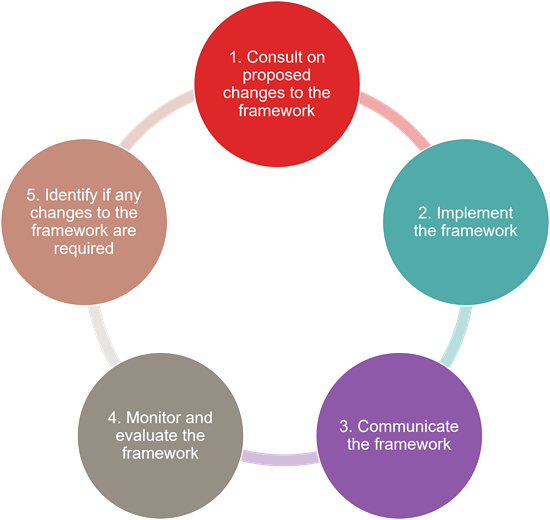This article was co-authored with Jessica Kamleh, Phina Conroy and Michael Wilson.
In late 2022, new provisions were included in the Sex Discrimination Act 1984 (Cth) (SD Act) to impose a positive duty on employers and persons conducting a business or undertaking (PCBUs) to take reasonable and proportionate measures to eliminate, as far as possible, certain unlawful conduct under the SD Act, including:
- sex discrimination with respect to employment and contract workers;
- sexual harassment or harassment on the grounds of sex;
- subjecting another person to a workplace environment that is hostile on the grounds of sex; and
- acts of victimisation (within the meaning of the SD Act) that relate to complaints, proceedings, assertions or allegations in relation to the conduct mentioned above.
The inclusion of PCBUs was intended to expand the scope of the duty to capture principal contractors, head contractors, franchisors, and the Crown.
While for Victorian employers this new obligation under the SD Act is largely consistent with the positive duty contained in the Equal Opportunity Act 2010 (Vic), there are two main differences:
- the SD Act imposes a duty on PCBUs (not just employers); and
- the SD Act includes a positive duty with respect to subjecting another person to a workplace environment that is hostile on the grounds of sex.
The standards outlined in the AHRC Guidelines for Complying with the Positive Duty (AHRC Guidelines) also differ from the standards specified in the Victorian Equal Opportunity Human Rights Commission’s Guideline: Preventing and responding to workplace sexual harassment (VEOHRC Guidelines). This means that if you are a Victorian employer currently complying with the VEOHRC Guidelines, it does not necessarily mean that you have complied with your obligations under the SD Act.
What is happening from 12 December 2023?
The AHRC has been granted a number of functions and powers to promote and ensure compliance with this new positive duty, which includes (but is not limited to) powers to monitor and assess compliance. These powers and functions commenced on and from 12 December 2023.
Importantly, if the AHRC reasonably suspects that an employer or PCBU is not complying with their positive duty, the AHRC may conduct an investigation. Depending on the outcome of the investigation, the AHRC may then:
- issue a compliance notice;
- recommend how best to comply with the positive duty;
- apply for a court order to enforce compliance; and/or
- enter into enforceable undertakings.
The AHRC Guidelines
The AHRC has released guidance on how employers and PCBUs may comply with the positive duty under the SD Act. The AHRC Guidelines focus on seven standards, which set out the AHRC’s expectations for employers and PCBUs:
| Standard |
Summary |
Leadership
|
Senior leaders need to understand their obligations under the SD Act and what is unlawful conduct.
It is important that a compliant framework imposes obligations on senior leaders to ensure that the organisation has appropriate measures in place to prevent and respond to unlawful conduct, and that these measures are implemented and communicated to workers.
Senior leaders are expected to set a positive example in the workplace, and promote a safe, respectful and inclusive workplace.
|
Culture
|
It is important for organisations to promote and foster a workplace culture that is safe, respectful and inclusive. This includes fostering a culture that values diversity and gender equality, enables and encourages workers to report unlawful conduct, and holds people to account.
|
Knowledge
|
Workplace training, policies and procedures must be developed, communicated and implemented to ensure workers are educated on expected standards of behaviour, how to identify behaviours that may be unlawful, the consequences for engaging in unlawful conduct, and their rights and responsibilities.
|
Risk management
|
Compliance requires a risk-based approach to preventing and responding to unlawful conduct, acknowledging that unlawful conduct poses a risk to psychological and physical safety.
|
| Support |
Employers and PCBUs must provide appropriate support to workers who experience or witness unlawful conduct, and ensure workers are made aware of the support available to them.
|
Reporting and response
|
Organisations must develop, implement and communicate appropriate mechanisms for workers to report unlawful conduct, as well as how the organisation will respond to reports. An organisation’s response to unlawful conduct must demonstrate that unlawful conduct is not acceptable and imposes consequences for those who have engaged in unlawful conduct that is proportionate and consistent.
|
Monitoring, evaluation and transparency
|
To understand prevalence of unlawful conduct in the workplace, organisations need to collect appropriate data, which should be assessed and used to improve workplace culture. It should also be relied upon as a mechanism to understand and determine whether the workplace practices in place are adequate and sufficient to prevent and respond to relevant unlawful conduct. |
| |
|
What do employers and PCBUs need to do to ensure compliance with the SD Act?
As an initial step, we recommend employers and PCBUs conduct a gap analysis to identify if any changes to their current framework are required to achieve compliance. If any gaps are identified, we recommend employers and PCBUs undertake the following steps in order to demonstrate compliance, and continue to review their framework to ensure continued compliance:

The changes to the SD Act form part of a broad suite of reforms implemented as a result of the Anti-Discrimination and Human Rights Legislation Amendment (Respect at Work) Act 2022 and the Sex Discrimination and Fair Work (Respect at Work) Amendment Act 2021 (Cth). These reforms also included amendments to the Fair Work Act 2009 (Cth) with respect to the prohibition of sexual harassment.
Stay tuned for our next article which will address these amendments and provide further information about ways in which the Fair Work Commission can deal with sexual harassment disputes.





